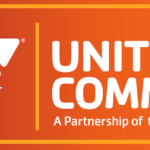Understanding the Unique Landscape of Asian-American Mental Health
The experience of mental health within the Asian-American community is deeply shaped by a confluence of cultural, social, and historical factors. We often steer a complex landscape defined by high family expectations, intense academic and professional pressures, and the pervasive influence of collectivist cultural values that prioritize group harmony over individual needs. For many, a bicultural identity—balancing traditional heritage with Western societal norms—can also create unique stressors. Furthermore, the unfortunate rise in anti-Asian racism and discrimination adds another layer of trauma and anxiety that impacts mental well-being.

These factors contribute to a nuanced mental health picture that is often misunderstood or overlooked. It’s crucial to acknowledge these unique challenges to provide truly effective and empathetic support. The journey towards healing often involves confronting these deeply ingrained dynamics and seeking culturally sensitive support that respects and understands their origins.
The Impact of the Model Minority Myth
One of the most insidious barriers to mental health care for Asian Americans is the “model minority” myth. This stereotype, while seemingly positive, places immense pressure on individuals to achieve exceptional academic and professional success, often at the expense of their emotional well-being. It fosters an environment where struggles are invalidated, and the expectation of perfectionism can lead to severe burnout, a debilitating fear of failure, and a reluctance to admit vulnerability. This can manifest as high-functioning anxiety, where individuals appear successful on the surface but are internally battling intense stress, or depression that goes undetected because outward signs of distress are suppressed. The myth creates a silence around mental health issues, making it incredibly difficult for individuals to recognize their own needs and seek help.
Navigating Intergenerational and Cultural Gaps
Intergenerational and cultural gaps further complicate the mental health landscape. Communication barriers between generations, often due to language differences or differing cultural values, can make it challenging to discuss personal struggles. The concept of filial piety, which emphasizes respect and care for elders, can lead younger generations to suppress their own needs to avoid burdening their parents or bringing perceived shame upon the family. This can result in significant emotional labor, where individuals take on excessive responsibilities for their families’ emotional and physical well-being, leading to patterns of healing from caretaking and codependency. The pressure to conform to family expectations and cultural norms can also foster profound feelings of guilt and shame when individuals feel they are not meeting these standards or are considering choices that deviate from them. Addressing these deeply rooted dynamics is essential for fostering open dialogue and promoting healthier family relationships.
Navigating California’s Mental Health System
California has been at the forefront of significant mental health system change, aiming to create a more accessible, equitable, and effective continuum of care. These changes are driven by a recognition that mental health is as vital as physical health. The state has implemented various initiatives and legislative reforms to address the growing mental health needs of its diverse population. A key aspect of this change involves strengthening mental health parity laws, ensuring that mental health and substance use disorder services are covered by insurance at the same level as physical health services.

The system relies heavily on county behavioral health services, which are often the first point of contact for individuals seeking care, especially for those with Medi-Cal. Understanding how to access these services, and the rights afforded to you under California law, is crucial for navigating this evolving landscape effectively.
Your Legal Rights to Mental Health Care in California
Federal and state laws provide significant protections for mental health and substance use disorder treatment coverage. The Affordable Care Act (ACA) mandates that most health plans cover mental health and substance use disorder services as essential health benefits, requiring parity with medical and surgical care. This means that insurers cannot impose stricter limits on mental health benefits than on physical health benefits.
California law further strengthens these protections. For instance, a California law (often referred to in the context of SB 221, though specific legislative numbers vary as laws are updated) requires timely access to care, mandating that health plans provide follow-up appointments for mental health and substance use disorder treatment within 10 business days. This is a critical step towards reducing wait times and ensuring continuity of care. If you have health insurance but are struggling to get treatment, you have the right to contact the Department of Managed Health Care at 1-888-466-2219. For those without a doctor or health insurance, resources like Covered California can help you find and enroll in a health plan that meets your needs. Understanding these rights empowers you to advocate for the care you deserve.
State-Sponsored Programs for Support
California offers a robust network of state-sponsored programs designed to support mental wellness across various age groups and demographics. CalHOPE is a prime example, providing free, confidential mental health resources and support to all Californians. It serves as a central hub, connecting individuals to a range of services.
For our younger populations and their families, CalHOPE offers specialized resources. BrightLife Kids provides mental health coaching and resources specifically for parents with children aged 0-12, helping them steer the challenges of early childhood development and parental stress. For teens and young adults aged 13-25, Soluna offers similar mental health coaching and resources, custom to the unique developmental and social pressures faced by this age group. These digital platforms make support more accessible and appealing to younger generations.
Recognizing the needs of older adults, California also supports initiatives like Friendship Line California, which offers a toll-free, confidential crisis intervention hotline and a warmline for non-emergency emotional support calls. These programs collectively aim to ensure that mental health support is available and custom to the specific needs of individuals throughout their lifespan in California.
Finding Culturally Competent Care and Therapeutic Approaches
Finding a therapist who understands your unique background, especially within the Asian-American community, is paramount for effective healing. Culturally competent care goes beyond simply acknowledging your ethnicity; it involves a deep understanding of your cultural values, family dynamics, potential experiences with discrimination, and the ways these factors intersect with your mental health. It means a therapist can steer discussions around collectivism versus individualism, filial piety, intergenerational trauma, and the “model minority” myth with sensitivity and insight. The therapeutic relationship thrives on trust and understanding, and when a therapist demonstrates cultural competence, it fosters a safer and more effective space for vulnerability and growth.

When seeking support, it’s beneficial to look for practitioners who explicitly state their experience and training in cultural competence, particularly with Asian-American clients. Don’t hesitate to ask about their approach to cultural topics during initial consultations. This intentional search is a vital step in your journey toward Asian-American mental health healing, ensuring that your therapeutic experience is truly custom to your needs.
Common Therapeutic Approaches for the Asian-American Community
Several therapeutic approaches can be particularly effective for individuals in the Asian-American community, especially when delivered with cultural sensitivity:
- Trauma-Informed Therapy: Given the potential for experiences like intergenerational trauma, racism, or family conflict, a trauma-informed therapy approach is crucial. This method recognizes the widespread impact of trauma and seeks to create a safe environment for healing without re-traumatizing individuals.
- Attachment-Focused EMDR: Eye Movement Desensitization and Reprocessing (EMDR) is highly effective for processing traumatic memories. When combined with an Attachment-Focused EMDR lens, it can also address relational trauma and insecure attachment styles that may stem from early family dynamics.
- Somatic Therapy: This approach recognizes the deep connection between mind and body. Somatic therapy helps individuals release stored trauma and stress from the body, which can be particularly helpful for those who have learned to suppress emotions or physical expressions of distress.
- Parts Work Therapy: Also known as Internal Family Systems (IFS), Parts Work Therapy helps individuals understand and integrate different “parts” of themselves—such as the part that feels pressure to achieve, the part that feels shame, or the part that seeks connection. This can be powerful for navigating bicultural identity and internal conflicts.
- Cognitive Behavioral Therapy (CBT): CBT focuses on identifying and changing negative thought patterns and behaviors. It can be adapted to address specific cultural stressors, such as perfectionism or social anxiety related to cultural expectations.
- Family Therapy: Given the emphasis on family in many Asian cultures, family therapy can be invaluable. It provides a space to improve communication, understand intergenerational dynamics, and address conflicts in a culturally sensitive manner.
The Growing Role of Peer Support in Asian-American Mental Health
Peer support is emerging as a powerful and transformative component of mental health care, particularly within communities where stigma around mental illness is prevalent. For Asian Americans, peer support offers a unique space for healing and connection. Peer support specialists are individuals with lived experience of mental health challenges who have undergone training to support others on their recovery journey. Their ability to share a similar cultural background, language, or understanding of specific community stressors can be profoundly validating.
This shared lived experience fosters deep empathy and trust, which can be difficult to build in traditional clinical settings due to cultural barriers or perceived power imbalances. Peer support helps in community building, creating networks where individuals feel understood, reducing isolation, and challenging the notion that mental health struggles must be endured alone. Organizations like NAMI California (National Alliance on Mental Illness) actively promote and train peer support specialists, advocating for their integration into the broader mental health system. Additionally, peer-run warm lines offer a non-crisis alternative to hotlines, providing a safe space for individuals to talk to someone who understands, offering emotional support and resource navigation without the pressure of a formal clinical interaction.
A Directory of Key Mental Health Resources
Navigating the mental health landscape can be overwhelming. To help you on your journey, we’ve compiled a list of national and California-based resources, including hotlines, online communities, and professional organizations.
Immediate and Non-Crisis Support Lines
- 988 Suicide & Crisis Lifeline: Call or text 988 anytime for free, confidential support for mental health crises, suicide prevention, or substance use concerns.
- CalHOPE Warm Line: A 24/7 peer-run crisis warm line offering free, confidential emotional support to Californians. Call (833) 317-HOPE (4673) for English or (833) 642-7696 for Spanish. Live chat is also available.
- Teen Line: Teens can connect with highly trained teen counselors who offer support and understanding. Call (800) 852-8336 or text “TEEN” to 839863.
- The Trevor Project: A leading national organization providing crisis intervention and suicide prevention services to LGBTQ young people under 25. Call 1-866-488-7386 or text START to 678-678.
Organizations Supporting the AAPI Community
- Asian Mental Health Collective (AMHC): Dedicated to normalizing and de-stigmatizing mental health within the Asian community. They offer a directory of Asian mental health professionals.
- Each Mind Matters API Resources: Provides a collection of mental health resources specifically custom for the Asian and Pacific Islander community, addressing cultural nuances and specific needs.
- Asian Health Services: A comprehensive health care center in Oakland, CA, offering primary care, dental, and behavioral health services with a strong focus on serving the Asian community.
- National Asian American Pacific Islander Mental Health Association (NAAPIMHA): Promotes the mental health and well-being of Asian Americans, Native Hawaiians, and Pacific Islanders through policy, research, and community engagement.
Frequently Asked Questions about Seeking Therapy
We understand that starting therapy can bring up many questions, especially within the context of cultural expectations. Here are some common questions and our insights.
How do I start a conversation with my family about my mental health?
Initiating a conversation about mental health with family, particularly in cultures where it’s stigmatized, requires sensitivity and preparation.
- Choose the right time and place: Find a moment when everyone is calm, not rushed, and in a private setting. Avoid high-stress times or public gatherings.
- Use “I” statements: Frame your feelings and needs around your own experience rather than accusing or blaming. For example, “I’ve been feeling overwhelmed lately,” instead of “You make me feel stressed.”
- Set boundaries: Be prepared for potential resistance or misunderstanding. It’s okay to set boundaries if the conversation becomes unproductive or emotionally draining.
- Provide educational resources: If comfortable, share articles or information about mental health, perhaps focusing on how stress affects physical health, which might be a more acceptable entry point.
- Understand their perspective: Your family’s reactions may stem from a desire to protect you, a lack of understanding, or their own cultural upbringing. Try to approach the conversation with empathy for their viewpoint, even if it differs from yours. This might be a process, not a one-time discussion.
What are the first steps to finding a therapist?
Finding the right therapist is a personal journey, but these steps can help:
- Self-reflection on goals: Before you start, consider what you hope to achieve in therapy. Are you seeking help for anxiety therapy, depression therapy, therapy for relationship conflicts, or something else?
- Ask for referrals: If you have a trusted primary care physician, ask them for recommendations. Friends or family who have had positive therapy experiences might also offer suggestions.
- Use online directories: Websites like Psychology Today, TherapyDen, or the Asian Mental Health Collective’s directory allow you to filter therapists by location, specialization, insurance, and cultural background.
- Schedule consultation calls: Many therapists offer a free 15-minute consultation. Use this time to ask about their approach, fees, availability, and how they incorporate cultural competence into their practice.
- Ask about their approach to cultural topics: Specifically inquire about their experience working with Asian-American clients and how they address cultural nuances in therapy.
What if I can’t find a therapist who shares my exact cultural background?
While finding a therapist with a shared cultural background can be incredibly validating, it’s not always possible, or even necessary, for effective therapy.
- Focus on cultural humility: A good therapist will practice cultural humility, meaning they are committed to a lifelong process of self-reflection and learning about diverse cultures, rather than claiming to be an expert. They should be open to learning from you about your unique cultural experiences.
- Ask about their experience with AAPI clients: Inquire specifically about their experience working with Asian-American and Pacific Islander clients and the cultural considerations they bring to their practice.
- Inquire about their training in cultural competence: Ask if they have received specific training in cultural competence or anti-racism, and how they apply it.
- A good fit is about more than shared identity: A strong therapeutic alliance—built on trust, empathy, and a sense of being understood—is the most crucial factor. A therapist who is genuinely curious, respectful, and willing to engage with your cultural context can be just as effective as one who shares your background. Don’t discount a therapist based solely on a lack of shared identity if other aspects of the fit feel right.
Conclusion
The journey to mental wellness, especially for the Asian-American community, is a testament to resilience and strength. Seeking help is not a sign of weakness, but a powerful act of self-care and courage. California’s evolving mental health landscape, coupled with a growing awareness of the unique needs of diverse communities, offers more avenues for support than ever before.
We encourage you to start on this personalized journey with empowerment through knowledge, knowing your rights, and utilizing the wealth of resources available. Whether it’s through state-sponsored programs, culturally competent therapists, or the invaluable support of peer networks, hope for healing is within reach. Taking that first step, no matter how small, can lead to profound and lasting change.
If you are ready to explore your mental health journey with a compassionate and understanding professional, consider reaching out for support. Your well-being matters.







